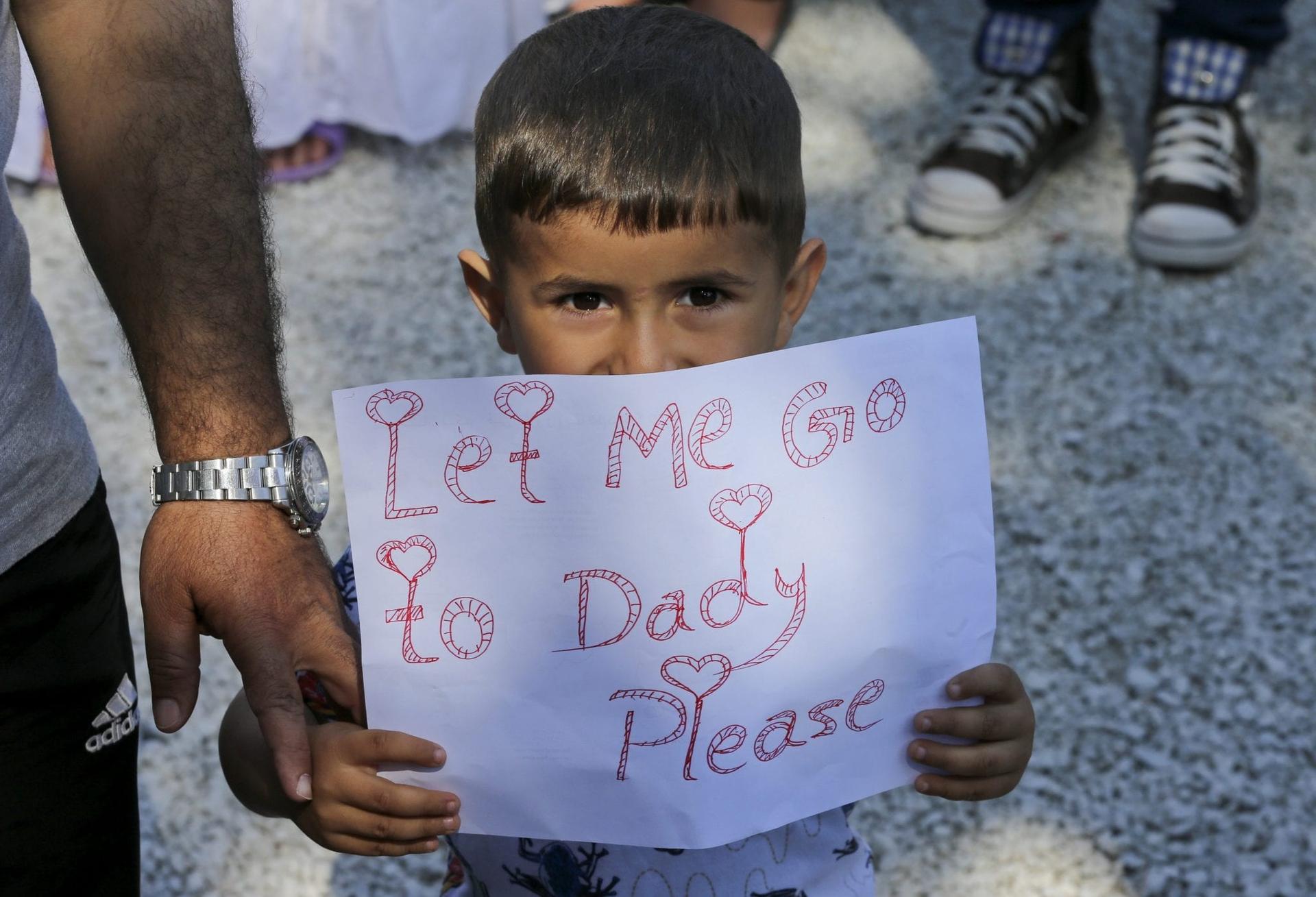ROME – While speaking to the national directors of the pastoral for migrants, Pope Francis said that he is concerned about the increase of xenophobia and intolerance toward migrants and called on local dioceses to view the migrant flow as a new missionary frontier.
The migrant crisis is still at the forefront of political and societal debate in Europe. On Thursday, the Libyan authorities announced that one of the precarious boats carrying migrants to the Italian coast has gone missing and almost 100 people, including several children, are feared dead. If their fears are confirmed, the death toll for 2017 on the Mediterranean route would rise to 2,373 people, although that’s not even half the number of victims in 2016, the worst year ever for migrant deaths in the Mediterranean.
Meanwhile animosity and resentment toward migrants grows in the old continent, exacerbated by the anti-migration slogans of the growing right-wing populist parties.
“I will not hide my concern before the signs of intolerance, discrimination and xenophobia that can be found in different regions of Europe,” the pope told the directors meeting in Rome for a congress organized by the Council for the Bishop’s Conferences of Europe (CCEE) on September 21-23. “They are often motivated by distrust and fear toward the other, the different, the stranger.”
Pope Francis expressed an even larger concern for such behaviors within the Catholic communities in Europe, and called the Church to be faithful to its mission of “loving Jesus Christ, adore Him and love Him, particularly in the poorest and abandoned; among them migrants and refugees are surely included.”
The maternal love of the Church, the pope said, must embrace the entire migrant experience from when they first set off, to when they are in journey, until they arrive and eventually return home. Francis insisted that all local ecclesiastical entities be participant in this mission, depending on their abilities.
At the Apostolic Palace, the pontiff reminded those present that the Church has been greatly enriched by the migration of missionaries who brought the Gospel into the far corners of the Earth. “In the history of the Church the temptations to seclude itself and be exclusive were many, but the Holy Spirit always helped us to overcome them, guaranteeing a constant openness toward the other, considered as a concrete possibility of growth and enrichment,” the pope said.
Although, the pope admitted, that when speaking to the various Churches around Europe he has picked up a deep discomfort toward the massive flux of migrants and refugees. “Such discomfort must be recognized and understood in light of a historical moment marked by the economic crisis, which left deep wounds,” the pope explained, adding that other causes can be found in the composition of the migrant flows and the substantial unpreparedness of European countries to welcome them.
“The discomfort is also indicative of the limits of the process of European unification,” the pope continued and of the many walls and obstacles that impede the realization of integral humanism, which the pope defined as “one of the most beautiful fruits of the European civilization.”
Francis stressed that this migrant flow represents a hidden opportunity for the Church, which can enrich itself by the presence of Catholic migrants, who bring with them their devotion and religious enthusiasm. This is particularly true in Europe, which registers a declining birth rate and an aging population.
“The contemporary migrant flows represent a new missionary ‘frontier’,” the pope said during the morning audience. “The encounter with migrants and refugees from other confessions and beliefs is a fertile ground for the development of a sincere and enriching ecumenical and interreligious dialogue.”
Francis also mentioned his speech for the next International Day for Migrants and Refugees, which presents the pope’s pastoral approach to today’s migratory challenges: welcome, protect, promote, integrate. He also stressed the importance that local churches use and take advantage of the 20 points of action presented by the Migrant and Refugee Section of the Dicastery for Promoting Integral Human Development.
In his opening address, Italian Cardinal Angelo Bagnasco of Genoa, president of the CCEE, underlined “with humility and discretion” the importance of the work being done by the Catholic Church to help migrants and refugees in Europe through concrete works of charity.
“We are aware that in the past years many European countries have been hardly hit by social and economic crisis that have weakened the very same European project, loosening personal and social ties, and creating bewilderment and confusion toward this great exodus,” Bagnasco said. “We worry about this as well as of the condition of many families, poor people, unemployed, and all those who suffer in our continent.”















